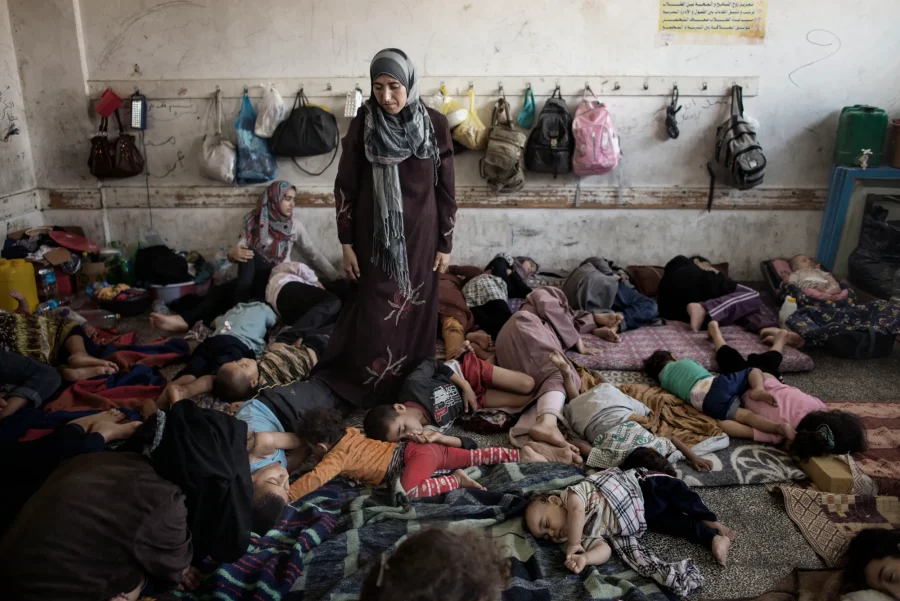Israeli military operations killed at least 73 people a day before a 4-day pause in fighting became effective on Nov 24, a UN agency reported on Saturday.
Over 1.7 million people in Gaza, or nearly 80 per cent of the population, are estimated to be internally displaced, with nearly 896,000 IDPs sheltering in 99 facilities in the south.
The UN Office for the Coordination of Humanitarian Affairs (OCHA) noted that Israel intensified its air, land, and sea strikes 24 hours before the pause, triggering ground battles with Palestinian fighters in the north of Wadi Gaza and in the Middle Area. In one of the deadliest incidents on Nov 23, a school in Jabalia was hit in an airstrike, reportedly killing 27 people and injuring another 93. Additionally, two residential buildings in Rafah city were hit, resulting in a reported total of 14 casualties, including six children.
A house in central Khan Yunis and another in the Sheikh Radwan area of Gaza city were also hit, reportedly causing fatalities.
In Nuseirat camp, Israelis reportedly blew up two cars, resulting in 11 fatalities, most of them children. The UN report also included an estimate by the Government Media Office (GMO) in Gaza, indicating that over 14,800 people had been killed till Nov 23, including about 6,000 children and 4,000 women.
Due to limited space in southern shelters, most displaced men and older boys are sleeping outdoors.
In Khan Younis, a few hundred IDP families have been accommodated in tents outside a UN-RWA shelter. The report highlighted increases in communicable diseases in refugee shelters due to overcrowding and poor sanitary conditions.
The OCHA report mentioned that several thousand Palestinians attempted to move from the area south of Wadi Gaza to the north on Nov 24, despite an Israeli military warning against returning.
A man interviewed at the crossing point cited hunger as the main reason for leaving the north, as shelters in the south received no food assistance for weeks.
The UN agency also observed the movement of unaccompanied children and separated families in recent days, with humanitarian agencies providing assistance, including case registration.—APP










